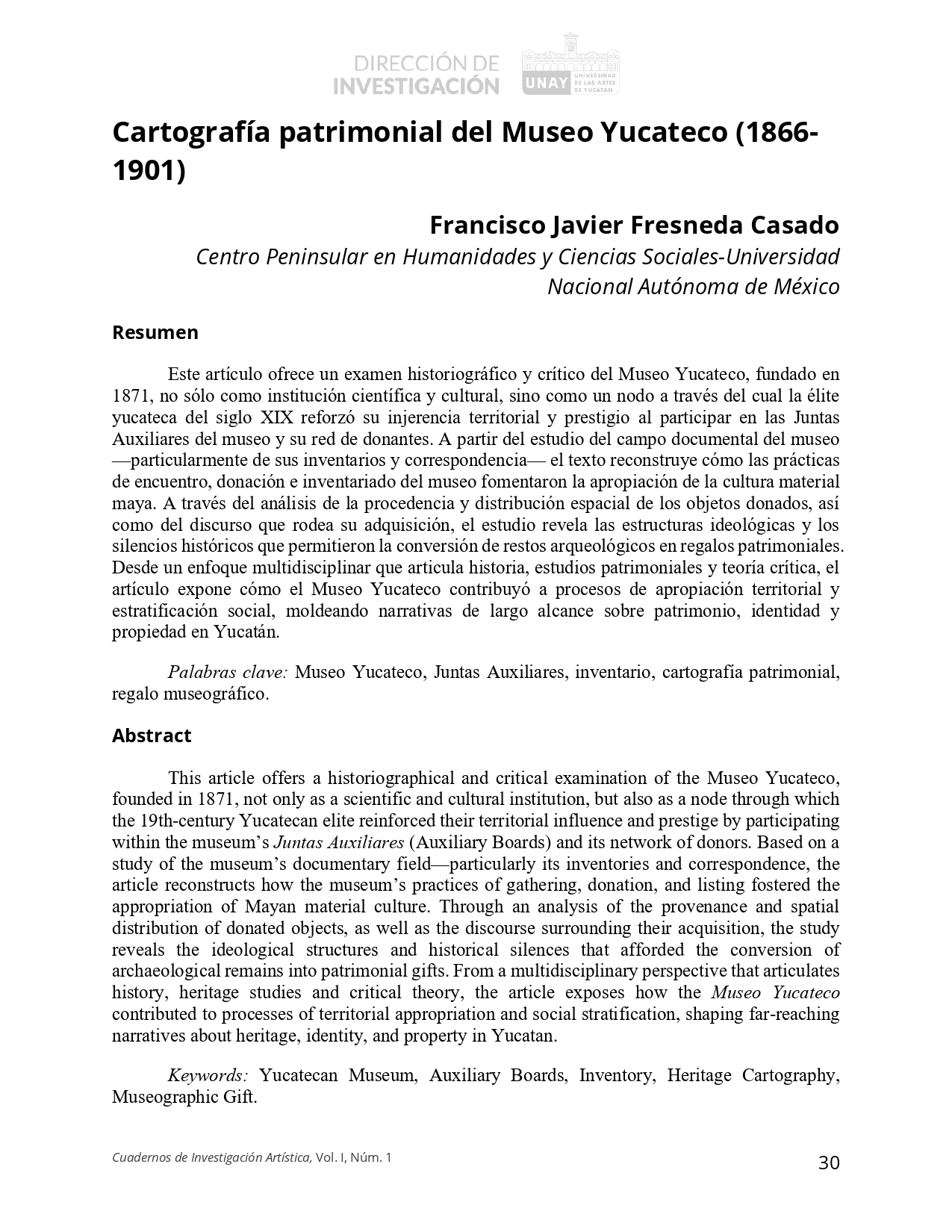Cartografía patrimonial del Museo Yucateco (1866-1901)
Palabras clave:
Museo Yucateco, Juntas Auxiliares, Inventario, Cartografía patrimonial, Regalo museográficoResumen
Este artículo ofrece un examen historiográfico y crítico del Museo Yucateco, fundado en 1871, no sólo como institución científica y cultural, sino como un nodo a través del cual la élite yucateca del siglo XIX reforzó su injerencia territorial y prestigio al participar en las Juntas Auxiliares del museo y su red de donantes. A partir del estudio del campo documental del museo —particularmente de sus inventarios y correspondencia— el texto reconstruye cómo las prácticas de encuentro, donación e inventariado del museo fomentaron la apropiación de la cultura material maya. A través del análisis de la procedencia y distribución espacial de los objetos donados, así como del discurso que rodea su adquisición, el estudio revela las estructuras ideológicas y los silencios históricos que permitieron la conversión de restos arqueológicos en regalos patrimoniales.
Desde un enfoque multidisciplinar que articula historia, estudios patrimoniales y teoría crítica, el artículo expone cómo el Museo Yucateco contribuyó a procesos de apropiación territorial y estratificación social, moldeando narrativas de largo alcance sobre patrimonio, identidad y propiedad en Yucatán.
————
This article offers a historiographical and critical examination of the Museo Yucateco, founded in 1871, not only as a scientific and cultural institution, but also as a node through which the 19th-century Yucatecan elite reinforced their territorial influence and prestige by participating within the museum’s Juntas Auxiliares (Auxiliary Boards) and its network of donors. Based on a study of the museum’s documentary field—particularly its inventories and correspondence, the article reconstructs how the museum’s practices of gathering, donation, and listing fostered the appropriation of Mayan material culture. Through an analysis of the provenance and spatial distribution of donated objects, as well as the discourse surrounding their acquisition, the study reveals the ideological structures and historical silences that afforded the conversion of archaeological remains into patrimonial gifts. From a multidisciplinary perspective that articulates history, heritage studies and critical theory, the article exposes how the Museo Yucateco contributed to processes of territorial appropriation and social stratification, shaping far-reaching narratives about heritage, identity, and property in Yucatan.
Keywords: Yucatecan Museum, Auxiliary Boards, Inventory, Heritage Cartography, Museographic Gift.


